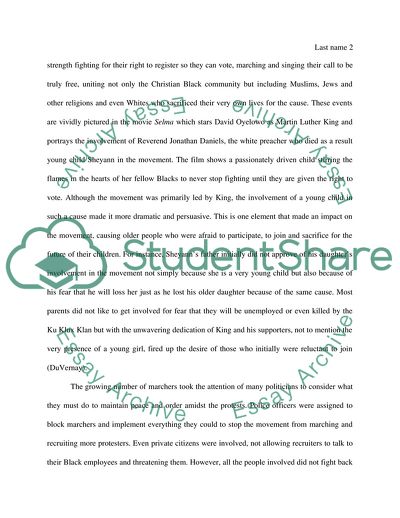Cite this document
(Selma - Struggle for Civil Rights in Mid-Century USA Movie Review Example | Topics and Well Written Essays - 1500 words, n.d.)
Selma - Struggle for Civil Rights in Mid-Century USA Movie Review Example | Topics and Well Written Essays - 1500 words. https://studentshare.org/history/1859542-the-struggle-for-civil-rights-in-mid-century-usa
Selma - Struggle for Civil Rights in Mid-Century USA Movie Review Example | Topics and Well Written Essays - 1500 words. https://studentshare.org/history/1859542-the-struggle-for-civil-rights-in-mid-century-usa
(Selma - Struggle for Civil Rights in Mid-Century USA Movie Review Example | Topics and Well Written Essays - 1500 Words)
Selma - Struggle for Civil Rights in Mid-Century USA Movie Review Example | Topics and Well Written Essays - 1500 Words. https://studentshare.org/history/1859542-the-struggle-for-civil-rights-in-mid-century-usa.
Selma - Struggle for Civil Rights in Mid-Century USA Movie Review Example | Topics and Well Written Essays - 1500 Words. https://studentshare.org/history/1859542-the-struggle-for-civil-rights-in-mid-century-usa.
“Selma - Struggle for Civil Rights in Mid-Century USA Movie Review Example | Topics and Well Written Essays - 1500 Words”. https://studentshare.org/history/1859542-the-struggle-for-civil-rights-in-mid-century-usa.


